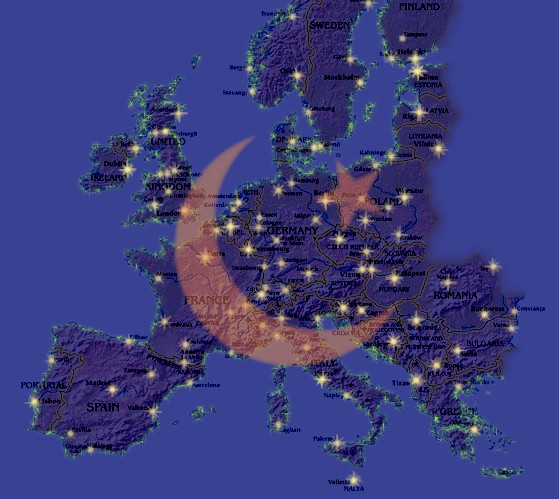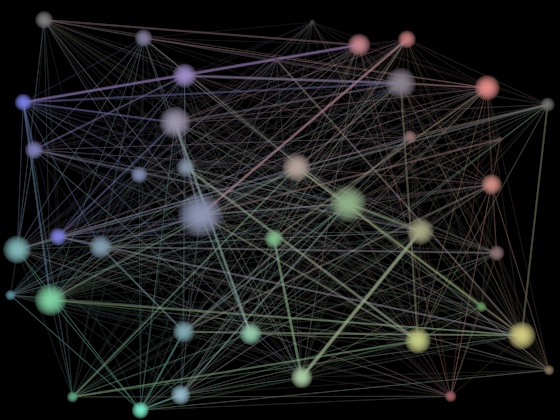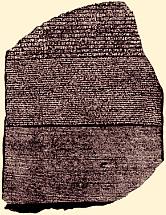Our Indian correspondent The Kafir takes a look at the life script of Mohammed, which authorizes — and even commands — the murder, rape, enslavement, and subjugation of anyone who is not a member of his 1400-year-old crime family.
The Longest-Running Crime Family
By The Kafir
The famous Jesuit maxim, “Give me a child for his first seven years and I’ll give you the man,” talks of the first seven years of life. Eric Berne, the famous American psychiatrist and the originator of Transactional Analysis, says the script actually becomes fixed in the first five years of life. Many other variants of the maxim also speak of the first five or six years of life.
Most versions of Mohammed’s life begin with unfortunate but somewhat romantic ‘orphan boy’ talk. All report that he lost his father before he was born, and his mother by his sixth birthday. Almost all omit, or mention just in passing, that he was in fact in the foster care of a Bedouin family living in the desert for the first five years of his life.
This has very important implications. In his first five years he only saw desert. A desert devoid of any music, art, sculpture and refinement. A desert with warfare, loot and rape. After he was brought back to live with his family, in the one year he was with his mother he found her in utter helplessness. And later, after losing her, he was left dependent upon the family of his grandfather.
Simple conclusions follow:
| 1. |
|
His life script was fixed before he came to the bustling trading town of Mecca. |
| 2. |
|
He felt utterly helpless in his early years. |
| 3. |
|
He never had the affection and care that only a natural mother in a happy marriage can give. |
| 4. |
|
He never even had the doting male elders around him in his early years.
|
Some children who feel utter helplessness in childhood are known to grow up to be very cruel (Ivan the Terrible is another example from history), lose all empathy with fellow human beings, and become mad after power.
The above explains almost everything about Mohammed that is not picked from other religions: monotheism from Sabeans and other two Abrahamic religions, a ban on idolatry from the other two Abrahamic religions, prophethood from Judaism and the concept of a Book also from the other two Abrahamic religions, with the Book itself heavily borrowing from the Books of these two religions. The penal code of the Quran is picked up from practices of the day, as are most of the Islamic rituals.
As for Mohammed being a prophet, if indeed he was one: only a very cruel God would make a prophet go through the stratagems Mohammed went through to make his prophethood acceptable, and triumphant. All he needed to do was will, and Mohammed would have been happily accepted as a prophet by all seven billion people of the world. After all, God’s objective would have been the delivery of the message, the code by which he wanted people to live, instead of putting a man born in the desert of Arabia through trials and tribulations, in the process causing him do the evil and morally reprehensible tasks that have become a curse on humanity, because Mohammed’s conduct has also been declared the conduct of a perfect man.
And as for Quran being the exact word of God, upon reading it only a man with a totally broken moral compass can accept it to be a word of God. Though there are hundreds of verses that would offend any civilized person, my favourite are quoted below:
Quran 4.4. We have sent no Messenger save with the tongue of his people, that he might make (the Message) clear to them. Then God leads whomever He wills astray, and He guides whomever He wills. He is the All-Glorious with irresistible might, the All-Wise.
Please recall that this is a verse that is supposed to be the exact word of God fixed till eternity.
| 1. |
|
This makes it clear that Mohammed can be the prophet only of the Arabic speaking people. |
| 2. |
|
God is saying He only decides who will believe and who will not!!
|
Then why all the bloodshed and killing of kafirs? The kafirs are kafirs only because God willed it so!! How can they be punished/harassed/killed for being what God willed them to be? Why hell for them? For carrying out the will of God?
Quran 17.13. Every human being’s fate, We have fastened around his neck, and We will bring forth for him on the Day of Resurrection a book which he will see spread open.
So for every human being his fate is fixed by God, leaving no choice for him. Then for what is he to be judged on the Judgement Day?
Then there is this little matter of permitting slaves and sex slaves. Only a person with a sick morality can believe that God will permit slaves and sex slaves, and the rape of war captives.
Quran 4.24. And (also forbidden to you are) all married women, save those (captives) whom your right hands possess. This is God’s decree, binding upon you. Lawful for you are all beyond those mentioned, that you may seek, offering them of your wealth, taking them in sound chastity, and not in licentiousness. And whomever of them you seek to enjoy in marriage, give them their bridal-due as a duty. But there is no blame on you for what you do by mutual agreement after the duty. Assuredly, God is All-Knowing (of what you do and why), and All-Wise.
Quran (33:50). “O Prophet! We have made lawful to thee thy wives to whom thou hast paid their dowers; and those (slaves) whom thy right hand possesses out of the prisoners of war whom Allah has assigned to thee”
The above two verses should have been the terminating words for the claims of prophecy of Mohammed, but the most tragic flaw in man is that he goes strictly by self-interest. Make lawful for him what his base instincts want, and gather around you enough of such men that those who still possess some sense of morality are not able to stop, and you have it made.
For the “Quran only” crowd, the above verses are beyond any explanation. And of course the “Quran Only” ruse doesn’t hold much water in view of the following verses:
Continue reading →
 Even as I write these words, the ball is dropping in Times Square.
Even as I write these words, the ball is dropping in Times Square.




 Several people emailed us that week to say how remarkable the operation was, and that only Gates of Vienna could manage something of the sort. That may well be true (I’ll have more to say about the matter later), but it’s important to remember one fact: Gates of Vienna did not do it. The entire network did it. I act as a “factory representative”, but I front for an entire factory that does all the hard, sweaty work.
Several people emailed us that week to say how remarkable the operation was, and that only Gates of Vienna could manage something of the sort. That may well be true (I’ll have more to say about the matter later), but it’s important to remember one fact: Gates of Vienna did not do it. The entire network did it. I act as a “factory representative”, but I front for an entire factory that does all the hard, sweaty work.





